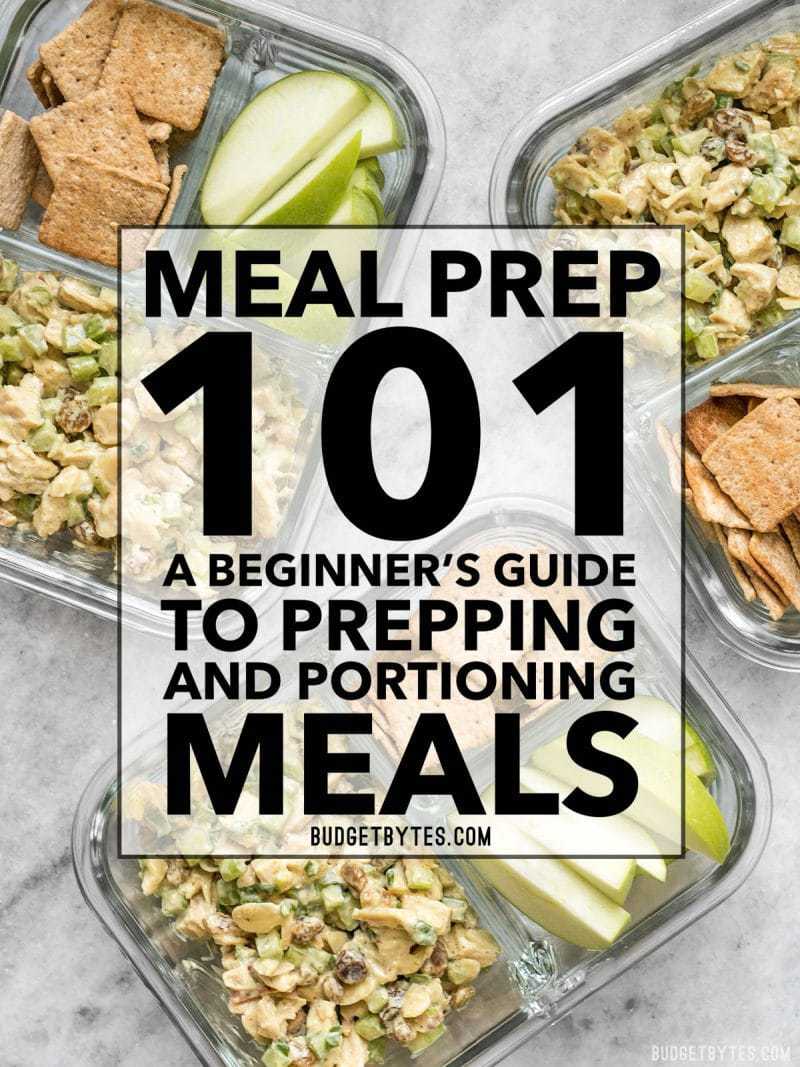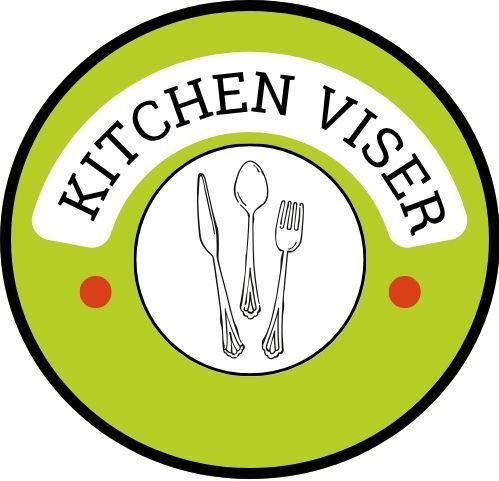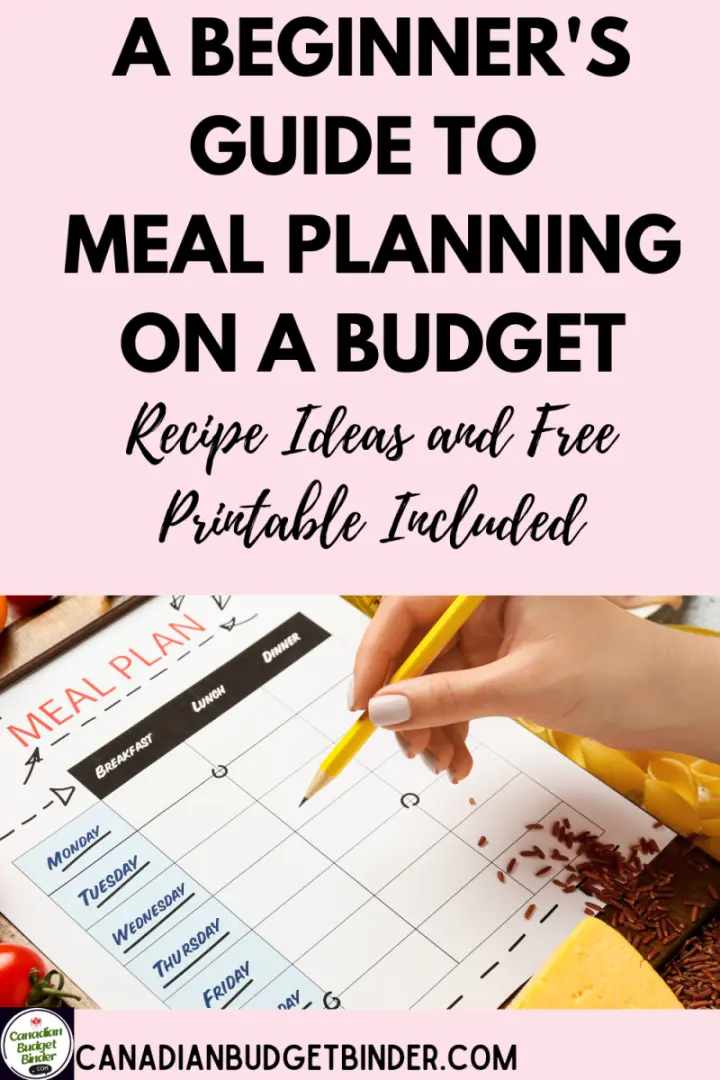Imagine opening your fridge and knowing exactly what to cook without feeling overwhelmed or stressed. Meal planning on a budget can be your secret weapon to achieving this sense of calm and control.
It’s not just about saving money—it’s about reclaiming your time, reducing food waste, and making healthier choices without breaking the bank. You might be thinking, “But how do I even start? ” Don’t worry; you’re not alone. Many people feel the same way at first, but once you get the hang of it, meal planning becomes second nature.
Stick with me, and I’ll show you how to turn your kitchen into a well-oiled machine, all while keeping your wallet happy. Whether you’re a seasoned cook or a kitchen newbie, this guide will help you master meal planning with ease. Ready to transform your mealtime routine and savor the benefits? Let’s dive in!
Benefits Of Meal Planning
Meal planning saves money by reducing food waste and allowing you to buy in bulk. It simplifies grocery shopping and helps maintain a balanced diet. Planning meals in advance ensures healthier eating habits and minimizes impulse purchases. Perfect for beginners wanting to eat well on a budget.
Meal planning might sound like just another task on your to-do list, but it can be a game-changer, especially when you’re on a budget. Imagine knowing exactly what you’re having for dinner each night without the stress of last-minute decisions. It’s not just about saving money—it’s about creating a lifestyle that supports your health, time, and peace of mind. Let’s dive into the benefits and see how meal planning can transform your daily routine.1. Saves Time
Think about how much time you spend deciding what to eat, going to the store, or waiting in line for takeout. Meal planning slashes that time considerably. With a plan in place, you can do all your shopping in one go. That means fewer trips to the grocery store and more time for the things you love. Plus, knowing what’s for dinner can free up mental space for other decisions.2. Reduces Food Waste
Have you ever thrown away wilted lettuce or forgotten leftovers? Meal planning helps you buy only what you need. This means less food goes to waste. You can use up ingredients before they spoil. For example, planning to use half a pepper in a stir-fry and the rest in a salad ensures you make the most of your groceries.3. Saves Money
When you plan your meals, you can avoid the temptation of impulse buys. Sticking to your shopping list helps you stay within your budget. You can also take advantage of sales and bulk buying. Imagine the savings when you buy chicken in bulk and freeze portions for future meals.4. Encourages Healthier Eating
When you decide your meals in advance, you’re more likely to choose healthier options. It’s easier to include a variety of nutrients and plan balanced meals. You can incorporate more veggies and whole grains when you plan ahead. This not only benefits your waistline but also boosts your energy levels.5. Reduces Stress
The daily question of “What’s for dinner?” can be surprisingly stressful. Meal planning removes the guesswork. You know what you’re cooking each night, which can make your evenings more relaxing. Imagine coming home and knowing exactly what to prepare without last-minute scrambles.6. Allows For Creativity
Contrary to what you might think, meal planning can actually spark creativity. Planning allows you to try new recipes and cuisines. You can explore a new dish every week while still staying within your budget. By planning, you have the freedom to be adventurous without the risk of overspending. So, are you ready to give meal planning a try? With all these benefits, it’s clear that a little preparation goes a long way. What will be the first meal you plan?Setting A Budget
Setting a budget is the cornerstone of successful meal planning, especially when you’re trying to save money. By understanding your expenses and making informed decisions, you can enjoy delicious meals without breaking the bank. Let’s dive into how you can set a realistic budget for your meal planning journey.
Assessing Your Expenses
Before you can set a budget, it’s important to know where your money is going. Start by listing all your monthly expenses. Look at your grocery receipts from the past few weeks. Are there items you can cut back on or substitute for cheaper alternatives? Recognizing spending patterns can be eye-opening.
Think about the essentials versus the luxuries in your diet. Do you often buy snacks or pre-packaged foods? These can add up quickly. By identifying non-essential purchases, you can redirect your funds towards more wholesome ingredients.
Consider how often you dine out. Eating at restaurants can be pricey. Could you replicate some of your favorite meals at home? This simple shift can save a significant amount of money.
Determining A Weekly Food Budget
Once you’ve assessed your expenses, it’s time to determine a weekly food budget. Start by setting a realistic amount you can comfortably spend. How much did you spend on groceries last month? Use this as a baseline, but remember that small adjustments can lead to big savings.
Create a budget that aligns with your priorities. Want to eat healthier? Allocate more for fresh produce and less on processed snacks. Are you looking to indulge occasionally? Set aside a small portion for treats without overspending.
Consider a weekly budget that allows flexibility. If you find a great deal on pantry staples, stock up. This can free up funds for future weeks. Planning ahead and taking advantage of sales can help you stretch your budget further.
Ask yourself: Are there seasonal foods you can include to save money? Seasonal fruits and vegetables are often cheaper and fresher. This not only supports your budget but also adds variety to your meals.
By setting a clear budget, you empower yourself to make mindful choices. How will you balance saving money and enjoying quality meals? The answer lies in thoughtful planning and adaptability.
Essential Tools
When you’re starting with meal planning on a budget, having the right tools can make a huge difference. Essential tools can save you time, money, and stress. They help streamline the process, making it easier to stick to your budget and enjoy delicious meals.
Grocery List Apps
Imagine standing in the grocery aisle, feeling overwhelmed by the choices and unsure what to buy. Grocery list apps can change that experience. These apps let you organize your shopping list efficiently. They keep track of what you need, helping you avoid impulse buys.
Popular apps like AnyList and Bring! allow you to categorize items and even share lists with family members. This ensures everyone’s needs are met without overspending. Have you ever noticed how sticking to a list reduces unnecessary purchases? It’s a simple step but incredibly effective.
Budgeting Software
Managing money doesn’t have to be a chore. Budgeting software can simplify the process, giving you a clear picture of your spending. Tools like Mint or YNAB (You Need A Budget) let you set a food budget and track expenses in real-time.
Have you ever been surprised by how much you spend on groceries monthly? Budgeting software can highlight these patterns, prompting smarter spending decisions. It’s like having a personal finance advisor at your fingertips, guiding you to stay on track.
These tools not only aid in planning meals but also instill financial discipline. Do you find yourself frequently overspending? With these tools, you can set limits and stick to them. What a relief it is to know exactly where your money is going!
Using these essential tools can transform your meal planning experience. They provide clarity and control, making budgeting less daunting. Are you ready to embrace a more organized and financially savvy approach to meal planning?

Credit: www.fundingcloudnine.com
Creating A Meal Plan
Starting a meal plan helps save money and time. Simple steps guide you to budget-friendly meals each week. Enjoy healthy eating without overspending.
Creating a meal plan is like setting the foundation for a week of balanced eating without breaking the bank. It empowers you to make thoughtful food choices and ensures you get the most out of every dollar spent. With a bit of planning, you can enjoy diverse, nutritious meals that are both satisfying and economical.Choosing Recipes
Start by selecting recipes that use affordable ingredients. Think about versatile items like rice, beans, and seasonal vegetables. These staples are not only budget-friendly but can be transformed into various dishes. Consider your cooking skills and the time you have. If you’re a beginner, pick simple recipes that don’t require fancy techniques. Quick and easy dishes can still be delicious and nourishing. Look for recipes that allow you to cook in bulk. This way, you can save time and have leftovers for another meal. Batch cooking soups, stews, and casseroles can be a real lifesaver during busy weeks.Balancing Nutrition
Ensure your meals are balanced by including a mix of protein, carbs, and fats. This balance keeps you energized and full throughout the day. For proteins, think about eggs, legumes, or canned fish. Vegetables should be a key player in your meal plan. They add flavor, color, and nutrients without a hefty price tag. Incorporating a variety of veggies can keep your meals interesting. Don’t forget to factor in snacks. Healthy snacking can prevent overeating during meals. Consider fruits, nuts, or yogurt as budget-friendly options. Have you ever found yourself stuck eating the same meals over and over? Experimenting with new recipes can reignite your passion for cooking and eating healthily. Why not try incorporating one new dish each week? Meal planning doesn’t have to be rigid. Be flexible and adapt based on what’s on sale or what you already have at home. This approach not only saves money but also reduces food waste.Shopping Strategies
Meal planning on a budget doesn’t mean sacrificing quality or flavor. With smart shopping strategies, you can enjoy nutritious meals without stretching your wallet. Here are some effective ways to make your grocery shopping more budget-friendly.
Buying In Bulk
Buying in bulk can save you significant money, especially on staple items. Think about products you use regularly, like rice, pasta, or canned goods. These items often have a long shelf life, so stocking up when they’re on sale makes sense.
Consider joining a wholesale club or visiting local bulk stores. They often have competitive prices for large quantities. But remember, only purchase what you know you’ll use to avoid waste.
I once bought a year’s supply of quinoa during a sale and saved 50% compared to buying smaller packs. It was a win for my wallet and my meal variety. What staple could you buy in bulk to save money?
Using Coupons And Discounts
Coupons and discounts are your friends in budget meal planning. They’re like little bonuses that help stretch your food dollars further. Keep an eye on weekly flyers or sign up for store newsletters to get the latest deals.
Apps and websites often offer digital coupons that can be easily applied at checkout. Combine these with store sales for maximum savings. Just be sure to use coupons for items you actually need, rather than items you wouldn’t ordinarily buy.
Once, I saved $20 in one shopping trip simply by stacking coupons with in-store discounts. Those savings went towards fresh produce, which made my meals healthier. How might you use coupons to enhance your meal planning strategy?
With these strategies, shopping becomes more than just a routine task. It turns into an opportunity to empower your meal planning and maintain your budget. What will your next smart shopping move be?
Cooking Efficiently
Efficient cooking starts with smart meal planning on a budget. Choose affordable ingredients and plan meals weekly. Save time and money by preparing meals in advance.
Cooking efficiently is key to meal planning on a budget. It saves time and reduces waste. This approach can stretch your resources further. It allows for healthier meals without breaking the bank. Let’s explore ways to cook efficiently.Batch Cooking
Batch cooking involves preparing meals in large quantities. Cook once, eat several times. This method reduces daily cooking. It utilizes ingredients fully, saving money. Start by selecting recipes that freeze well. Soups and stews are great options. Cook a big batch and store in portions. Use airtight containers for freshness. Label with date and contents. This helps track storage time. Plan meals ahead using these portions. It simplifies weekday dinners. Batch cooking also cuts grocery trips.Using Leftovers Creatively
Leftovers can transform into new dishes. They prevent food waste and save money. Start by assessing what’s left from dinner. Think about how it can be reused. Turn leftover chicken into a salad. Add veggies and dressing for flavor. Use rice for a stir-fry with eggs and soy sauce. Make a soup from leftover veggies. Get creative with what you have. Experiment with spices for new flavors. This approach keeps meals interesting. It encourages trying new combinations. Leftovers can add variety to your diet.Avoiding Common Pitfalls
Meal planning on a budget can be a smart way to save money. But, beginners often stumble on common pitfalls. Being aware of these can help you make better choices and stay on track. Avoiding mistakes means more savings and less stress.
Impulse Buying
Impulse buying is a frequent trap. Stores are designed to tempt you. Colorful displays and discounts lure shoppers. Stick to your list to avoid these distractions. Pre-plan meals and buy only what’s necessary. This keeps your budget in check.
Impulse buying wastes money. It leads to buying things you don’t need. It can also derail your meal plan. Keep focused by setting a clear budget. Shop with a purpose to avoid unnecessary purchases.
Overbuying Perishables
Overbuying perishables can be costly. Fresh produce spoils quickly. Buying too much can lead to waste. Plan meals around what you need. Make a list based on recipes you will cook.
Use up perishables before they spoil. Freeze excess items if possible. This saves money and reduces waste. A well-thought-out plan prevents overbuying. Stick to your list and manage perishables wisely.

Credit: www.youtube.com
Maintaining Variety
Variety keeps meals exciting and nutritious. Rotate ingredients like vegetables, proteins, and grains. Experiment with flavors, spices, and cooking methods to prevent monotony.
Maintaining variety in meal planning on a budget is crucial to keeping your meals exciting and your taste buds satisfied. You might think that sticking to a budget means repetitive meals, but with a little creativity, you can enjoy diverse flavors without overspending. Let’s dive into some practical strategies to ensure your meals are both budget-friendly and varied.Seasonal Produce
Buying seasonal produce is a simple way to keep your meals fresh and affordable. Seasonal fruits and vegetables are typically cheaper and more flavorful. Think about a juicy watermelon in the summer or hearty squashes in the fall. Visit your local farmer’s market or check your grocery store for deals on seasonal items. You’ll be surprised at the variety available. Have you ever tried cooking with fresh asparagus in spring or made a pumpkin stew in autumn? These seasonal favorites can inspire new dishes.Trying New Ingredients
Incorporate new ingredients into your meals to expand your culinary horizons. You don’t need to buy expensive gourmet items; instead, focus on budget-friendly staples like lentils, quinoa, or chickpeas. Experiment with spices and herbs. A pinch of cumin or a sprinkle of basil can transform a dish. Have you ever thought about using coconut milk in your soups or trying a new type of bean? These small tweaks can add immense variety to your meal plan. Does your local store offer international sections? Exploring these aisles can introduce you to ingredients like tofu or couscous, often at a lower price than you’d expect. Trying new foods can not only be a fun adventure but also a way to discover cost-effective meal options. By focusing on seasonal produce and trying new ingredients, you can create a meal plan that is as varied as it is budget-friendly. So, what new ingredient will you try this week?
Credit: www.budgetbytes.com
Frequently Asked Questions
What Is Meal Planning On A Budget?
Meal planning on a budget means organizing meals that fit your financial limits. It helps save money.
How Can I Start Meal Planning?
Begin by listing favorite meals. Check what you have at home. Plan meals using affordable ingredients.
Why Is Meal Planning Beneficial?
It reduces food waste and saves time. Helps stick to a budget. Encourages healthier eating.
How Do I Choose Budget-friendly Ingredients?
Focus on seasonal produce. Buy in bulk. Choose generic brands. Use coupons when possible.
Can Meal Planning Save Money?
Yes, it prevents impulsive buys. Helps avoid eating out. You buy only what you need.
Conclusion
Meal planning on a budget can save time and money. Simple steps help you start. List meals, shop smart, and use leftovers. Try new recipes with affordable ingredients. Keep meals balanced and nutritious. Planning reduces stress and waste. It’s easy to adjust for busy weeks.
Start small and grow your skills. Enjoy cooking without breaking the bank. Share ideas with friends and family. Meal planning supports your health and wallet. Make it a fun routine. Anyone can do it. Happy planning!

Yes, working as , Food Blogger and Product Reviewer for last 6 years. Here you will get amazing deals for Smart kitchen products. I am your best source for the latest update in cooking trends. I provide insightful articles, reviews, and analysis on cutting-edge kitchen gadget. My mission is to empower readers with the knowledge they need to stay ahead in a rapidly evolving coking world. Join me as we explore the future of food technology and how it shapes our lives today and tomorrow.



